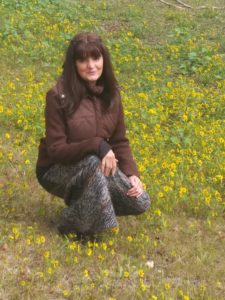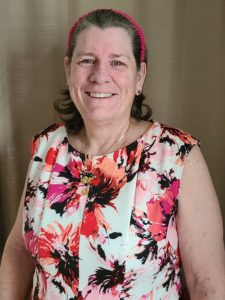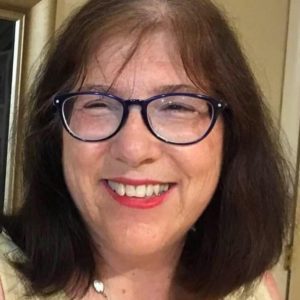
With the season of giving thanks upon us, Adat Chaim Synagogue recently held an online event on the importance of expressing gratitude.
On Nov. 10, Adat Chaim hosted Bracha Goetz, the author of 40 Jewish children’s books and a resident of Baltimore, for a discussion on gratitude.
The aim of the event was to combine the different threads of gratitude, the Thanksgiving season and Judaism together, said Linda Boteach, vice president of the synagogue’s sisterhood programming and a resident of Reisterstown.
“After this whole year, many people had suffered losses, but then many people saw some opportunities and some good things that had come out of COVID,” Boteach said.
Cathy Litofsky, president of Adat Chaim and a resident of Owings Mills, explained that the event dealt heavily with the Torah’s wisdom on how to express gratitude.
“It really was talking about thankfulness and gratitude,” Litofsky said. “But the guidelines that we have from Torah and expressing gratitude and how we approach expressing gratitude really is firmly set in our foundation with Torah. And it really allowed us to expand a little bit on that with Bracha [Goetz] and her discussion last night.”
In Goetz’s view, Thanksgiving and its emphasis on gratitude, rather than constituting a single day of the year, is something that can take place every single day for a Jewish person.
“The essence of being a Jew is being grateful,” said Goetz, a member of Ohel Yaakov Congregation. “That’s what’s central to being Jewish. And that’s really what we do all day. All the mitzvahs are about giving gratitude; they’re all expressions of gratitude. That’s really our purpose for being here.”

As many as 25 people RSVP’d for the event, said Litofsky, who added that several attendees were joined by a spouse.
Goetz’s presentation involved a give-and-take discussion with the audience.
“From my perspective, I thought Bracha [Goetz] really did a great job,” Boteach said. “Because the first thing she talked about was how, because of COVID, it really was a huge spiritual force that pushed us forward and made us really look at some of the things we may have taken for granted.”
At one point, Goetz asked attendees to think of something they used to take for granted that they no longer do. Boteach recalled many attendees noting how important Zoom had been for them over the course of the pandemic, herself included.
“Last Thanksgiving, when nobody could get together, I contact[ed] family members all across the country and I did a big Zoom meeting and got everybody together on Zoom, and everybody was so happy to see each other,” Boteach said. “And I never would have done that before. I would have just had my immediate family, or maybe a few relatives here and there, but it allowed me to connect to people.
“So that’s something that, as we said, was something good that came out of the pandemic,” Boteach added.

One point Goetz wanted to emphasize was the concept of the “pleasure ladder,” which comes from kabbalistic teachings, she said. According to this notion, she explained, there are five levels of pleasure, each corresponding to one of the five levels of the human soul. The lowest level focuses on physical pleasures, while the higher levels correspond to things such as love, meaning, creativity and transcendence.
You get to each rung “through gratitude,” Goetz said. “That’s how we experience pleasure in this world.”







